|
|
|
Cambridge University Press
|
The Western tradition of philosophy began in Greece with a cluster of thinkers often called the Presocratics, whose influence has been incalculable. They include the early Ionian cosmologists, Pythagoras, Heraclitus, the Eleatics (Parmenides, Melissus, and Zeno), Empedocles, Anaxagoras, the atomists and the sophists. All these thinkers are discussed in this volume both as individuals and collectively in chapters on rational theology, epistemology, psychology, rhetoric and relativism, justice, and poetics. A chapter on causality extends the focus to include historians and medical writers. |
|
This volume offers an account of English literary culture in one of its most volatile moments, when literature was enmeshed with the extremes of social, political and sexual experience. Newly-commissioned essays make use of current critical perspectives in order to offer new insight into the literature of Restoration and early eighteenth-century England in all its variety, from vitriolic satire to heroic verse. The volume's chronologies and select bibliographies will guide the reader through texts and events, while the fourteen essays commissioned for this Companion will allow us to read the period anew. |
|
This rich and varied portrait of the drama from 1660 to 1714 provides students with essential information about playwrights, staging and genres, situating them in the social and political culture of the time. No longer seen as a privileged arena for select dramatists and elite courtiers, the Restoration theatre is revealed in all of its tumult, energy and conflict. The fourteen newly-commissioned essays examine the theatre, paying attention to major playwrights such as Dryden, Wycherly and Congreve and also to more minor works and to plays by the first professional female dramatists. The book begins with chapters on the performance of the drama in its own time, on theatres, acting and staging, and continues with the main dramatic genres and themes, with a final chapter on the critical history of the drama. The volume also includes a thorough chronology and biographies and bibliographies of dramatists. |
|
The emergence of EU Private Law as an independent legal discipline is one of the most significant developments in European legal scholarship in recent times. In this Companion, leading scholars provide a critical introduction to the subject's key areas, while offering original and thought-provoking comment on the field. In addition to several chapters on consumer law topics, the collection has individual chapters on commercial contracts, competition law, non-discrimination law, financial services and travel law. It also discusses the wider issues concerning EU Private Law, such as its historical evolution, the role of comparative law, language and terminology, as well as the implications of the Common Frame of Reference project. A useful 'scene-setting' introduction and further reading arranged thematically make this important publication the student's and scholar's first port of call when exploring the field. |
|
Fourteen world-class experts on the Gothic provide thorough accounts of this haunting-to-horrifying genre from the 1760s to the end of the twentieth century. Essays explore the connections of Gothic fictions to political and industrial revolutions, the realistic novel, the theater, Romantic and post-Romantic poetry, nationalism and racism from Europe to America, colonized and post-colonial populations, the rise of film, the struggles between high and popular culture, and changing attitudes towards human identity, life and death, sanity and madness. The volume also includes a chronology and guides to further reading. |
|
This book presents ancient Greek tragedy in the context of late-twentieth-century reading, criticism and performance. The twelve chapters, written by seven distinguished scholars, cover tragedy as an institution in the civic life of ancient Athens, a range of approaches to the surviving plays, and changing patterns of reception, adaptation and performance from antiquity to the present. |
|
The Cambridge Companion to Hegel and Nineteenth-Century Philosophy examines Hegel within his broader historical and philosophical contexts. Covering all major aspects of Hegel's philosophy, the volume provides an introduction to his logic, epistemology, philosophy of mind, social and political philosophy, philosophy of nature and aesthetics. It includes essays by an internationally recognised team of Hegel scholars. The volume begins with Terry Pinkard's article on Hegel's life, a conspectus of his biography on Hegel. It also explores some new topics much neglected in Hegel scholarship: such as Hegel's hermeneutics and relationship to mysticism. Aimed at students and scholars of Hegel, this volume will be essential reading for anyone interested in nineteenth-century philosophy. The up-to-date bibliography includes the most important English-language literature on Hegel written in the last fifteen years. |
|
This Companion volume offers fifteen original essays on the Hellenistic world and is intended to complement and supplement general histories of the period from Alexander the Great to Kleopatra VII of Egypt. Each chapter treats a different aspect of the Hellenistic world — religion, philosophy, family, economy, material culture, and military campaigns, among other topics. The essays address key questions about this period: To what extent were Alexander's conquests responsible for the creation of this new 'Hellenistic' age What is the essence of this world and how does it differ from its Classical predecessor What continuities and discontinuities can be identified Collectively, the essays provide an in-depth view of a complex world. The volume also provides the most recent bibliography on the topics along with recommendations for further reading. |
|
The Irish novel has had a distinguished history. It spans such diverse authors as James Joyce, George Moore, Maria Edgeworth, Bram Stoker, Flann O'Brien, Samuel Beckett, Lady Morgan, John Banville, and others. Yet it has until now received less critical attention than Irish poetry and drama. This volume covers three hundred years of Irish achievement in fiction, with essays on key genres, themes, and authors. It provides critiques of individual works, accounts of important novelists, and histories of sub-genres and allied narrative forms, establishing significant social and political contexts for dozens of novels. The varied perspectives and emphases by more than a dozen critics and literary historians ensure that the Irish novel receives due tribute for its colour, variety and linguistic verve. Each chapter features recommended further reading. This is the perfect overview for students of the Irish novel from the romances of the seventeenth century to the present day. |
|
The Great War of 1914-1918 marked a turning point in modern history and culture. This Companion offers critical overviews of the major literary genres and social contexts that define the study of the literatures produced by World War I. It examines the war's impact on various national literatures before addressing the way the War affected Modernism, the European avant-garde, film, women's writing, memoirs, and, of course, the war poets. The volume concludes by addressing the legacy of the war for twentieth-century literature. |
|
This Companion provides an authoritative introduction to the historical, social and stylistic complexities of modern Irish culture. Readers will be introduced to Irish culture in its widest sense and helped to find their way through the cultural and theoretical debates that inform our understanding of modern Ireland. The volume combines cultural breadth and historical depth, supported by a chronology of Irish history and arts. A wide selection of essays on a rich variety of Irish cultural forms and practices are complemented by a series of in-depth analyses of key themes in Irish cultural politics. The range of topics covered will enable a comprehensive understanding of Irish culture, while the authors gathered here — all acknowledged experts in their fields — provide stimulating new essays that together amount to an invaluable guide to the shaping of modern Ireland. |
|
The term Latin America refers to the Portuguese and Spanish-speaking states created in the early 1820s following the wars of independence, states that differed enormously in geographical and demographical scale, ethnic composition and economic resources, yet shared distinct historical and cultural traits. Specially-commissioned essays by leading experts explore the unity and diversity of the region's cultural expressions. These essays analyse history and politics from the nineteenth century to the present day and consider the heritage of pre-Columbian and Colonial Latin America. There is a particular focus on narrative as well as on poetry, art and architecture, music, cinema, theatre, and broader issues of popular culture. A final chapter looks at the strong and rapidly expanding influence of latino/a culture in the United States. A chronology and guides to further reading are included, making this volume an invaluable introduction to the rich and varied culture of modern Latin America. |
|
The Cambridge Companion to Renaissance Philosophy provides an introduction to a complex period of change in the subject matter and practice of philosophy. The philosophy of the fourteenth through sixteenth centuries is often seen as transitional between the scholastic philosophy of the Middle Ages and modern philosophy, but the essays collected here, by a distinguished international team of contributors, call these assumptions into question, emphasizing both the continuity with scholastic philosophy and the role of Renaissance philosophy in the emergence of modernity. They explore the ways in which the science, religion and politics of the period reflect and are reflected in its philosophical life, and they emphasize the dynamism and pluralism of a period which saw both new perspectives and enduring contributions to the history of philosophy. This will be an invaluable guide for students of philosophy, intellectual historians, and all who are interested in Renaissance thought. |
|
The Cambridge Companion to the Roman Republic examines all aspects of Roman history and civilization from 509-49 BC. The key development of the republican period was Rome's rise from a small city to a wealthy metropolis and international capital of an extensive Mediterranean empire. These centuries produced the classic republican political system and the growth of a world empire. They also witnessed the disintegration of this system under the pressure of internal dissension and boundless ambition of its leading politicians. In this Companion volume, distinguished European and American scholars present a variety of lively, current approaches to understanding the political, military, and social aspects of Roman history, as well as its literary and visual culture. Designed to be accessible to the general reader and to students, The Cambridge Companion to the Roman Republic will invite further exploration to a vital, formative period of Roman history and its later influence. |
|
Satire as a distinct genre of writing was first developed by the Romans in the second century BCE. Regarded by them as uniquely 'their own', satire held a special place in the Roman imagination as the one genre that could address the problems of city life from the perspective of a 'real Roman'. In this Cambridge Companion an international team of scholars provides a stimulating introduction to Roman satire's core practitioners and practices, placing them within the contexts of Greco-Roman literary and political history. Besides addressing basic questions of authors, content, and form, the volume looks to the question of what satire 'does' within the world of Greco-Roman social exchanges, and goes on to treat the genre's further development, reception, and translation in Elizabethan England and beyond. Included are studies of the prosimetric, 'Menippean' satires that would become the models of Rabelais, Erasmus, More, and (narrative satire's crowning jewel) Swift. |
|
The Cambridge Companion to the Spanish Novel presents the development of the modern Spanish novel from 1600 to the present. Drawing on the combined legacies of Don Quijote and the traditions of the picaresque novel, these essays focus on the question of invention and experiment, on what constitutes the singular features of evolving fictional forms. It examines how the novel articulates the relationships between history and fiction, high and popular culture, art and ideology, and gender and society. Contributors highlight the role played by historical events and cultural contexts in the elaboration of the Spanish novel, which often takes a self-conscious stance toward literary tradition. Topics covered include the regional novel, women writers, and film and literature. This companionable survey, which includes a chronology and guide to further reading, conveys a vivid sense of the innovative techniques of the Spanish novel and of the debates surrounding it. |
|
This unique volume offers an odyssey through the ideas of the Stoics in three particular ways: first, through the historical trajectory of the school itself and its influence; second, through the recovery of the history of Stoic thought; third, through the ongoing confrontation with Stoicism, showing how it refines philosophical traditions, challenges the imagination, and ultimately defines the kind of life one chooses to lead. A distinguished roster of specialists have written an authoritative guide to the entire philosophical tradition. The first two chapters chart the history of the school in the ancient world, and are followed by chapters on the core themes of the Stoic system: epistemology, logic, natural philosophy, theology, determinism, and metaphysics. There are two chapters on what might be thought of as the heart and soul of the Stoics system: ethics. |
|
The Victorian era produced artistic achievements, technological inventions and social developments that continue to shape how we live today. This Companion offers authoritative coverage of that period's culture and its contexts in a group of specially commissioned essays reflecting the current state of research in each particular field. Covering topics from music to politics, art to technology, war to domestic arts, journalism to science, the essays address multiple aspects of the Victorian world. The book explores what 'Victorian' has come to mean and how an idea of the 'Victorian' might now be useful to historians of culture. It explores too the many different meanings of 'culture' itself in the nineteenth century and in contemporary scholarship. An invaluable resource for students of literature, history, and interdisciplinary studies, this Companion analyses the nature of nineteenth-century British cultural life and offers searching perspectives on their culture as seen from ours. |
|
The Cambridge Companion to Nineteenth-Century American Women's Writing is a specially commissioned collection designed for use by students. Providing an overview of the history of writing by women in the period, it establishes the context in which this writing emerged, and traces the origin of the terms which have traditionally defined the debate. It includes essays on topics of recent concern, such as women and war, erotic violence, the liberating and disciplinary effects of religion, and examines the work of a variety of women writers, including Harriet Beecher Stowe, Rebecca Harding Davis and Louisa May Alcott. The volume plots new directions for the study of American literary history, and provides several valuable tools for students, including a chronology of works and suggestions for further reading. |
|
This multifaceted picture of the British novel in its formative decades provides an indispensable guide for students of the eighteenth-century novel, and its place within the culture of its time. Drawing on new research in social and political history, the twelve contributors to this Companion challenge and refine the traditional view of the novel's origins and purposes. Sentimental and Gothic fiction, and fiction by women, are discussed, alongside detailed readings of work by Defoe, Swift, Richardson, Henry Fielding, Sterne, Smollett and Burney. |
|